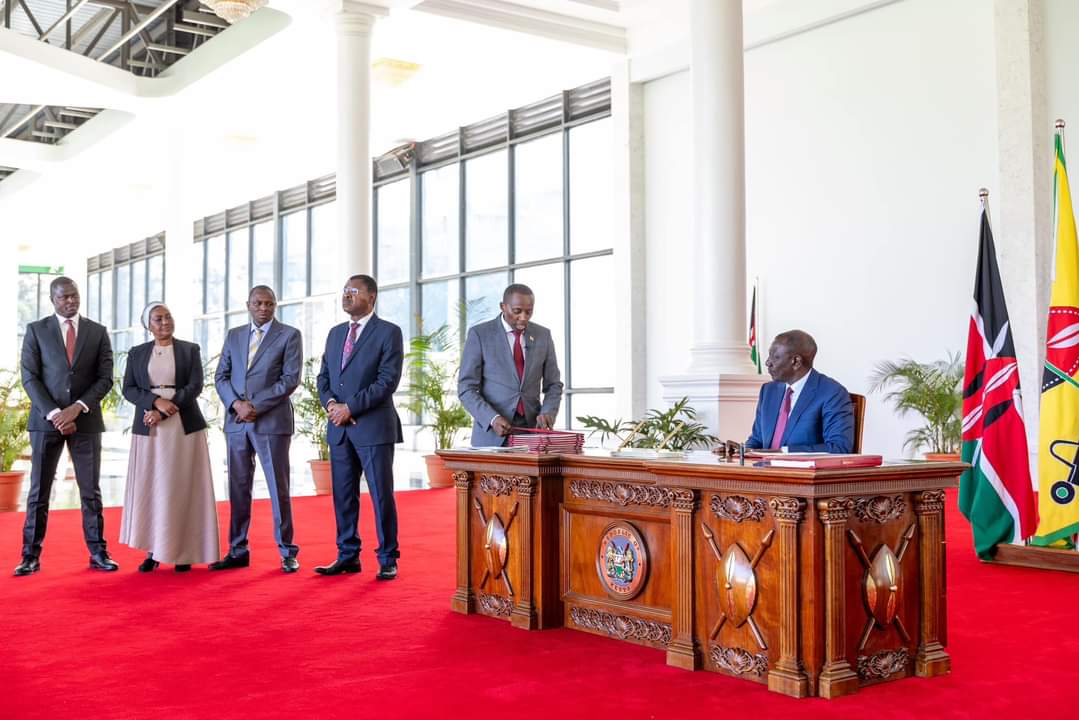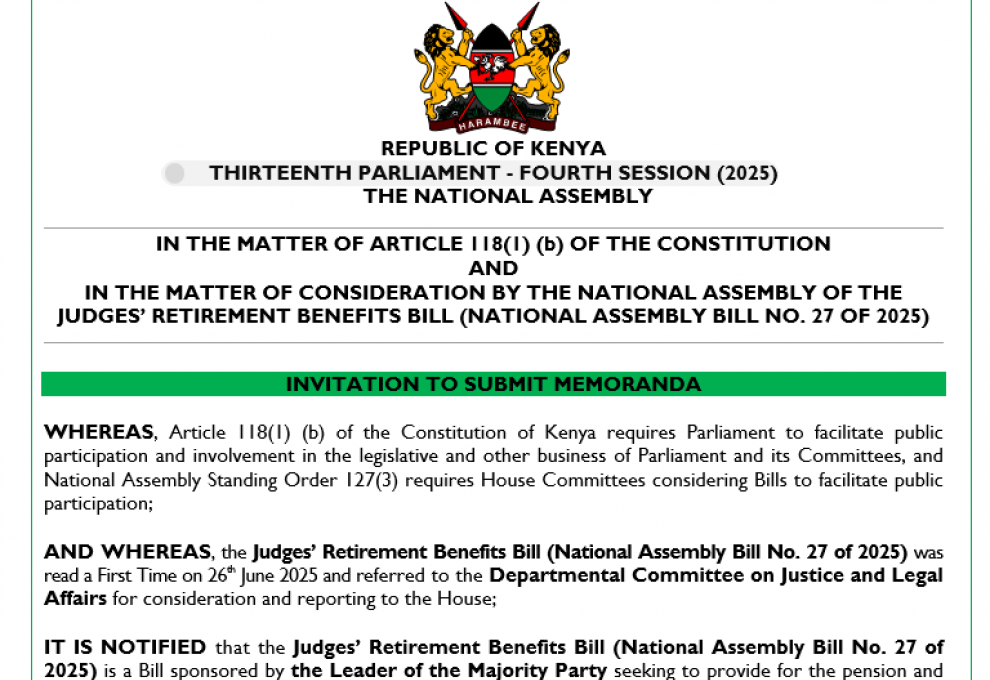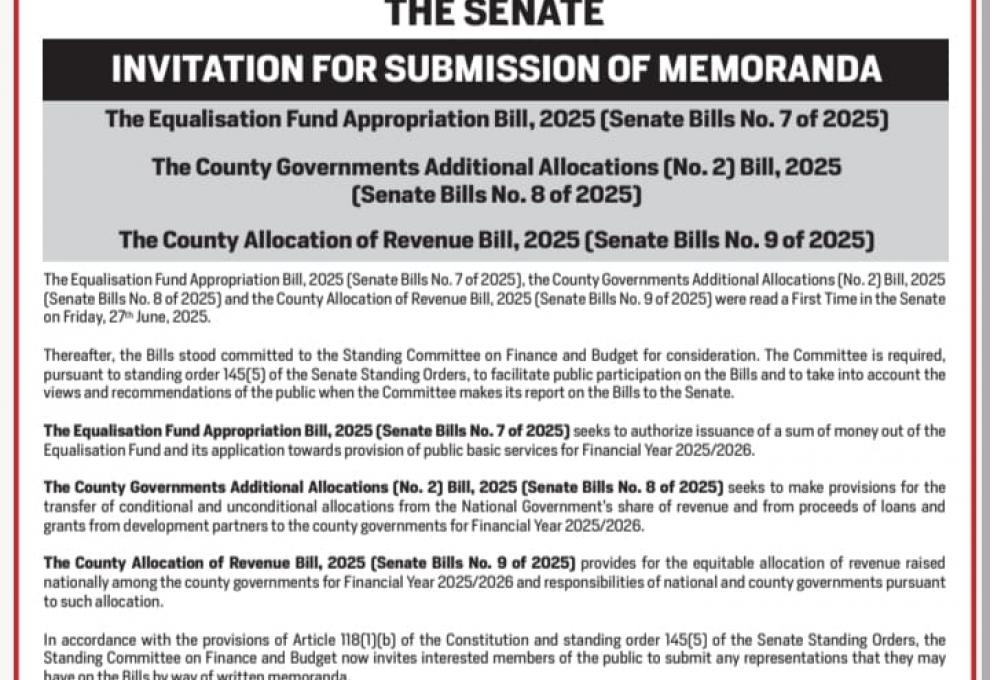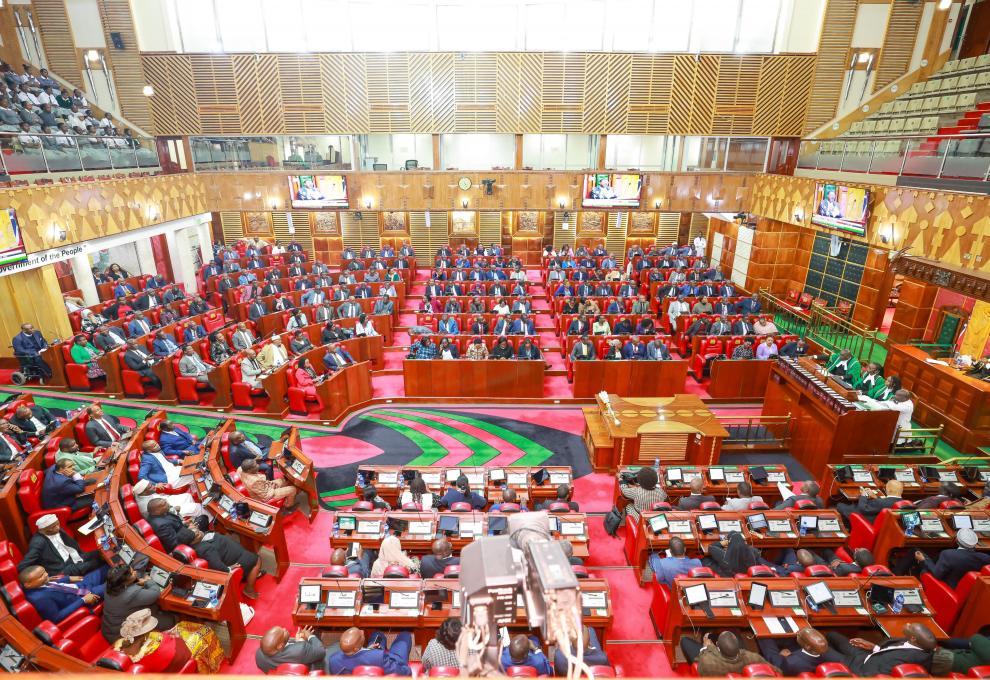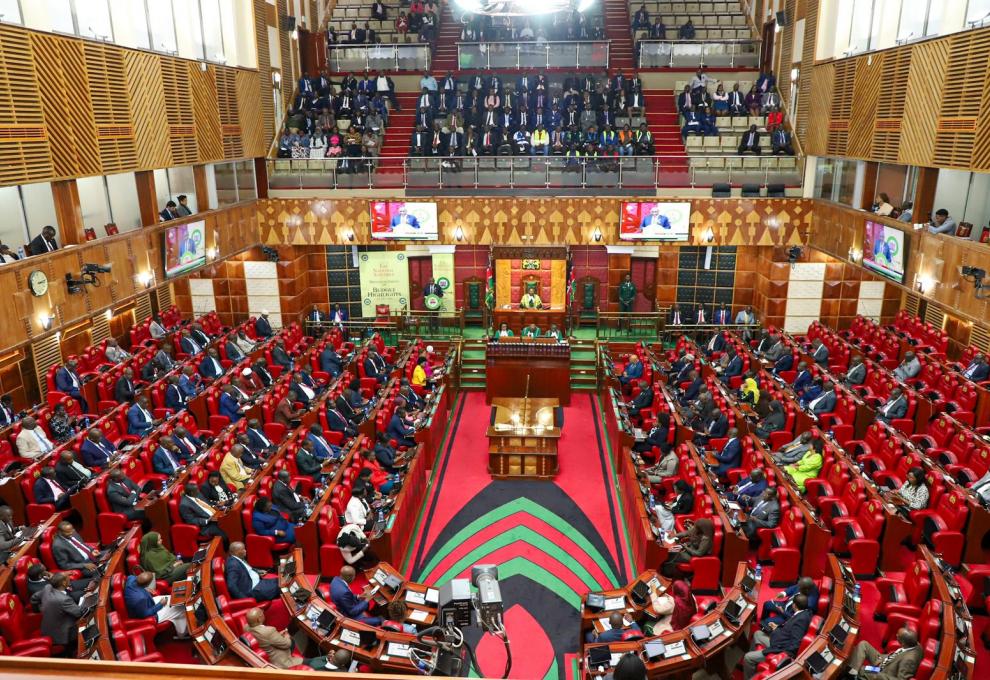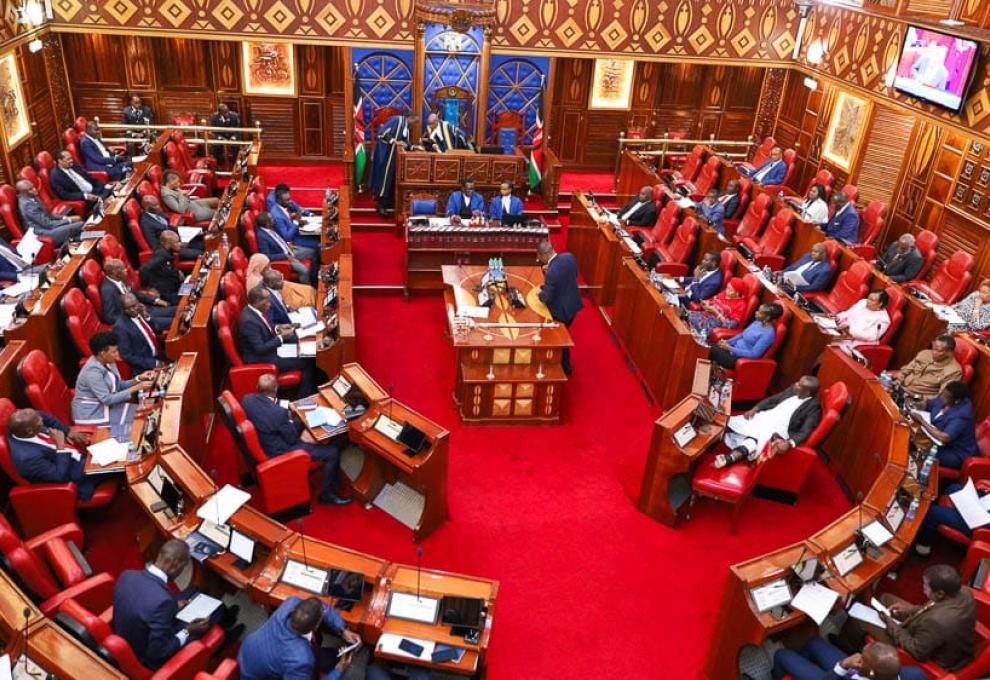𝐓𝐇𝐄 𝐒𝐔𝐏𝐏𝐋𝐄𝐌𝐄𝐍𝐓𝐀𝐑𝐘 𝐀𝐏𝐏𝐑𝐎𝐏𝐑𝐈𝐀𝐓𝐈𝐎𝐍 (𝐍𝐨.𝟐) 𝐁𝐈𝐋𝐋, 𝟐𝟎𝟐𝟒 𝐒𝐈𝐆𝐍𝐄𝐃 𝐈𝐍𝐓𝐎 𝐋𝐀𝐖
The Supplementary Appropriation (No.2) Bill (National Assembly Bill No. 39 of 2024) was on Monday, August 5, 2024 assented to by H.E President William Ruto.
The Bill sponsored by Chairperson, Budget and Appropriations Committee, Hon. Ndindi Nyoro (Kiharu) was considered and passed with amendments by the National Assembly on Wednesday, July 31, 2024.
The Supplementary Appropriation Act introduces reductions to recurrent and development expenditure for the three arms of Government, constitutional commissions and independent offices.
Based on concerns raised by members of the public, the Finance Bill, 2024 was rejected pursuant to Article 115 of the Constitution, resulting in a revenue shortfall of approximately Kshs.344.3 billion. The Supplementary Appropriation Act has been necessitated by the need to realign planned expenditures to the revised fiscal framework.
The total reduction for the National Government is Kshs.145.7 billion consisting of Kshs.40 billion for recurrent expenditure and Kshs.105 billion for the development expenditure.
The Executive’s budget has been reduced by a total of Kshs.139.81 billion drawn from various Ministries. The new law also contains a reduction of Kshs.3.7 billion for Parliament and Kshs.2.1 billion for the Judiciary.
The major recurrent expenditure reductions include, Kshs.6 billion for State House, Kshs.7 billion reduction for the National Treasury and reductions to various development projects under medical service and road projects and transport sector projects, Kshs.17.3 billion.
On the other hand, the Act allocates substantial funds to critical sectors. The Agriculture sector has received Kshs.20 billion boost for fertilizer subsidies, waiver for coffee farmers’ debt, support for dairy farmers, purchase of milk coolers and support for sugar farmers.
Through the Supplementary Appropriation Act, Kshs.18.7 billion is earmarked for the confirmation of all Junior Secondary School (JSS) interns into permanent and pensionable terms, Kshs.30.7 billion for capitation for JSS students including those transitioning to grade nine, Kshs.23 billion to universities for the Differentiated Unit Cost Funding Model, Kshs.31.3 billion to the Higher Education Loans Board (HELB) for scholarships and loans and Kshs.17 billion to the University Funding Board for scholarships to university students.
Allocations for the health sector includes; Kshs.3.7 billion for the medical internship program, Kshs.4 billion for the primary healthcare fund, Kshs.8.5 billion for contracted UHC healthcare workers and Community Health Volunteers.
To improve the working conditions of Police officers, the Kenya Police Service (KPS) has been allocated Kshs.3.5 billion towards enhancing remuneration for officers serving in various security organs in line with the recommendations of the Report of the National Taskforce on Police Reforms.



